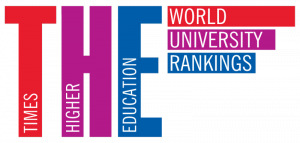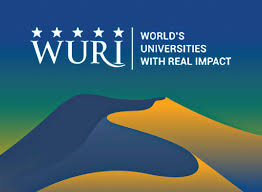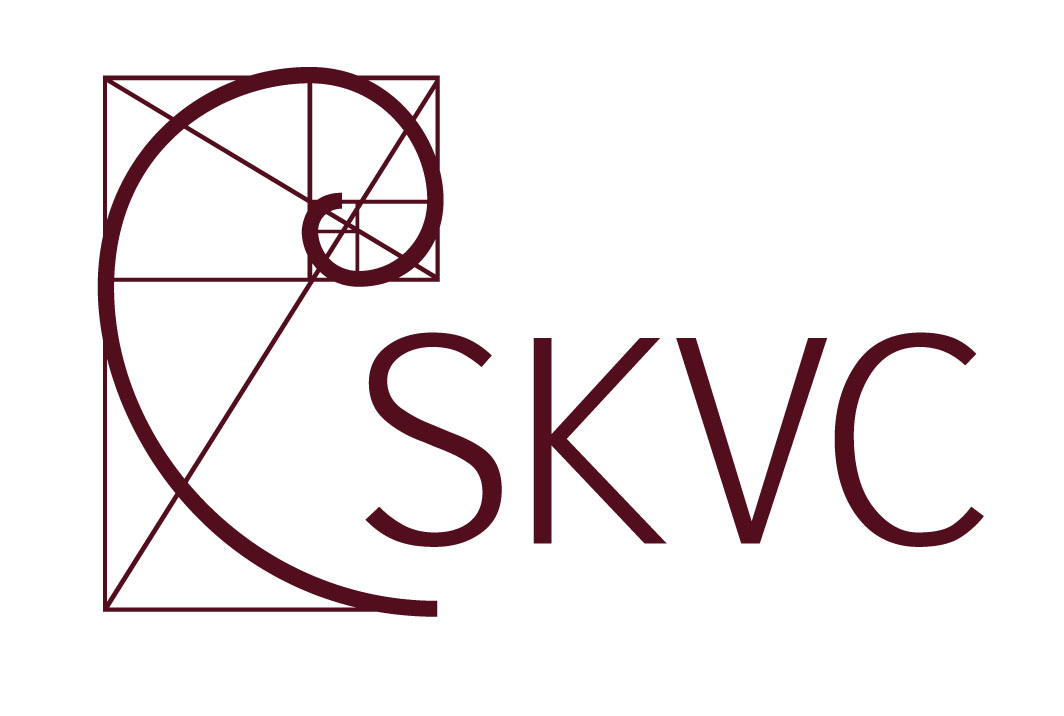Quality and Recognition
System of Quality Assurance
The system of VMU quality assurance includes all quality enhancement activities. This is a purposeful and targeted planning, implementation, evaluation, and improvement of strategic quality management, studies and learning, research and artistic activities, doctoral studies and the processes supporting them, in order to meet the priorities of higher education, legal requirements and the needs of social stakeholders.
Quality assurance of the University is guided by institutional, national and international priorities of studies, research and artistic activities, legal requirements, opinions and proposals of social stakeholders, recommendations of external evaluators, and examples of good practices. Quality assurance of the University is aimed at the development of quality culture, where compliance of activities with the highest quality requirements is a common interest and aspiration of the entire VMU community; activities are constantly monitored, information is analysed, and changes are responsibly introduced.
The concept, principles, responsibilities and processes of quality assurance as well as related documents and quality indicators are structured in the University Quality Manual (abstract).
International Recognition and Institutional Assessment
The Times Higher Education World University Rankings

In the latest Emerging Economies University Rankings published by Times Higher Education (THE), Vytautas Magnus University (VMU), included in the ranking for the first time, is ranked 401-500th. Among the four Lithuanian universities included in the ranking, VMU is ranked first in terms of international outlook, receiving as many as 68.5 points in this category. In the latest World University Rankings published by Times Higher Education (THE) magazine, Vytautas Magnus University (VMU) scored higher in all categories compared to the previous year. The University was awarded a high 311th place in the International Outlook category. VMU also received high scores in the THE rankings for individual study fields, namely pedagogy, life sciences, and social sciences.
Global Ranking of Innovative Universities “The World’s Universities with Real Impact” (WURI)

For the first time, Vytautas Magnus University was included in the global ranking of innovative universities “The World’s Universities with Real Impact” (WURI). The University was awarded a high 41 place in the entrepreneurship category. It is the first global ranking of universities to be designed to support and measure flexible, innovative efforts of universities to meet the needs of industry and society. The WURI ranking evaluates the best universities in four categories: industrial application, entrepreneurial spirit, ethical value, and student mobility and openness.
The QS World University Rankings

In the latest QS World University Rankings, Vytautas Magnus University (VMU) is confidently positioned among the most international universities in the world, while among Lithuanian universities it is the absolute leader.
This year, the increase in the international student ratio has surpassed the results of the ranking in 2021 – the number of foreign students studying at VMU has increased by as much as 53%. VMU is ranked 389th among all universities in the world, and this is by far the best result the university has ever achieved. VMU’s international faculty ratio is also improving every year.
When comparing Lithuanian universities, QS World University Rankings provides data that the amount of attention per student is growing fastest particularly at Vytautas Magnus University – the faculty/student ratio has increased by as much as 17%.
Employers’ feedback on the university and its graduates has also been improving the university’s reputation for three years in a row. According to the survey results, the reputation of VMU among current and potential employers of university graduates has risen by as much as 38%.
In 2022, when the total number of ranked universities in the QS World University Rankings increased to 1,422 (adding 124 new universities), VMU’s position has risen. Overall, from 2018 to the present day, VMU’s position in the ranking table has been growing steadily – over the last 5 years it has increased by as much as 25.4%.
QS World University Rankings by Subject 2022

Vytautas Magnus University (VMU) was included in these rankings for the second year in a row, receiving high positions: in the field of Performance Art, VMU was ranked 50-100th in the world, and in Agriculture and Forestry – 300-350th, the same as last year.
In total, as many as 29 subjects in which VMU conducts research and study activities were assessed in the QS Rankings. Most of these subjects received a score of over 40 points. VMU received high scores for activities in the fields of Performance Art (62.8 pts.) Agriculture and Forestry (53.1 pts.), Environmental Science (58.7 pts.), Social Sciences and Management (55.7 pts.), Arts and Humanities (55 pts.), Law (53.8 pts.), Geography (51.7 pts.), and Education Sciences (51.2 pts.), among other fields.
U-Multirank International University Ranking

In the largest international university ranking U-Multirank, Vytautas Magnus University (VMU) has received the highest scores (“good” and “very good”) in 16 categories, thus significantly improving the results of the previous year. The best ranked VMU achievements are in the categories of research, graduate companies, and student mobility, among other categories.
The U-Multirank ranking assessed the performance of world universities in teaching and learning, research, knowledge transfer, international orientation, and regional engagement in a total of 48 categories. VMU received the highest scores (A, or “very good”) for indicators assessing investment in digital education, pedagogical skills of teaching staff, companies newly founded by graduates, art related output, interdisciplinary publications, open access publications, gender balance, the proportion of female authors, student mobility, and the proportion of international academic staff.
The university was ranked “good” (B) for professional publications, foreign language bachelor and master programmes, regional joint publications, and the percentage of bachelor and master students graduating on time.
Rating of Lithuanian universities in the magazine “Reitingai”

On 11 May, the magazine “Reitingai” published the 2022 ranking of all Lithuanian state universities, in which Vytautas Magnus University scored 60.45 points and was ranked fourth.
The highest scoring University achievements included criteria assessing current and future academic staff (7.2 points) and scientific, artistic, or sporting activities and staff achievements (8.11 points). In these categories, the university is ranked second and third in Lithuania, respectively. VMU scored 8.3 points in the category of competition in the international study environment – just one point less than the university that ranked first.
In total, universities were assessed according to 39 different parameters under five broad criteria: scientific, artistic or sporting activities and staff achievements, added value created by graduates and employers’ evaluations, students and studies, competition in the international study environment, and current and future academic staff.
The latest issue of “Reitingai” also focuses on the preparedness of higher education institutions to accept students fleeing the war in Ukraine. VMU, the second largest and the most comprehensive university in Lithuania, accepted more than 70 Ukrainian students from the beginning of the war until the end of April. Before the war, 87 Ukrainians were pursuing a bachelor’s or master’s degree at VMU. The University is prepared to accept around a hundred more war refugees from Ukraine.
Evaluation of VMU activities by experts of the European University Association (EUA)

In 2014, an external evaluation by the European University Association (EUA) experts took place under the initiative of VMU, during which the EUA international experts presented their insights and evaluation conclusions about the activities of VMU. The experts responded very positively about the University’s openness to new ideas, positively evaluated study and research innovations at VMU and emphasized that the processes taking place at the University demonstrate excellent conditions for change and improvement. The experts proposed to strengthen the monitoring of the implementation of the VMU strategy in the future, to look for additional sources of income, to diversify the methods of providing support to students, to develop international cooperation in studies and research.
External Institutional Evaluation by experts of Centre for Quality Assessment in Higher Education (SKVC)

During external review of VMU in 2023, a group of international experts assembled by Centre for Quality Assessment in Higher Education (SKVC) evaluated VMU activities as “very good”, made positive decision and accredited the University for the maximum period of seven years. In the review conclusions, the experts admitted that the university not only stands out in the entire Europe due to flexibility of the studies it offers but also has wide-ranging international activities and high quality of scientific research and infrastructure. According to the expert group, during the integration with Aleksandras Stulginskis University and Lithuanian University of Educational Sciences, VMU developed effective management processes and VMU Strategic Activity Plan properly reflects its mission. As an active member of the European university alliance Transform4Europe, VMU is successfully seeking recognition as a university that conducts international-level research.
The experts gave VMU the rating “very good” in the categories of management, studies and research (art) and impact on regional and national development, and the rating “good” in the category of quality assurance. VMU was recognised for its clear management structure, which allowed it to respond effectively to the pandemic, the war in Ukraine and other unexpected events, as well as for its human resource management policies that support participative culture and for constant, highest-standard infrastructure renewals, e.g. VMU Sports Centre, Teacher Preparation Centre etc.
The broad range of VMU services for employees and students also received high assessment, as well as effective quality assurance based on national and international priorities, the Code of Academic Ethics and the Centre of Ukraine, which was visited by 24,000 Ukrainians in a year. According to the experts, VMU offers flexible studies based on liberal arts that make the university stand out not just in Lithuania but also in the entire Europe. The university provides great international opportunities for the entire community. VMU’s impact on regional and international development was also assessed as “very good”, especially the university’s close cooperation with social partners in various activities and studies, e.g. while organizing the National Forum on Human Rights.
The experts also provided recommendations on how the University’s management, development of studies and research, and the impact on regional and national development could be improved. For instance, it is suggested that the university’s strategic plan should be updated in accordance to already completed activities and more concise formulation should be used with fewer indicators dedicated to implementation of strategic goals; additionally, employee participation in the activities offered by the Professional Competence Development Centre should be encouraged, etc.
The conclusions and recommendations by the international experts were discussed during the meetings of VMU Rector’s Council, Senate, Council, and the university’s sub-divisions. Based on the experts’ recommendations, a plan is being developed for the improvement of VMU activities. In order to effectively implement the assessors’ recommendations, the improvement measures included in the plan are integrated into the activities of the academic and non-academic sub-divisions. The monitoring of the implementation of this plan is conducted annually, reviewing the actions performed in the respective VMU sub-divisions and summarizing them in the annual activity reports.
Study Quality Assurance
Regulation of internal study quality assurance
Statute of VMU describes the main principles of study quality in order to systematically assure the quality of studies.
VMU Study Regulations defines study quality processes and the division of responsibilities for study quality assurance.
Description of Procedure for Study Quality Assurance at VMU describes in detail the study quality assurance processes and measures for the planning, implementation and renewal of studies.
Description of Procedure of Feedback for Improvement of Quality of Studies at VMU regulates the process of collecting feedback from social stakeholders and using data for the purposes of evaluating and improving the quality of studies.
Description of Procedure for Study Course Attestation at VMU determines the evaluation of the compliance of the courses with the goals and learning outcomes of the study programme, the requirements of study process and the assessment system according to the established criteria.
Description of Procedure for Organisation of Online and Blended Studies at VMU regulates the evaluation of the suitability of study courses for online and blended studies and the attestation of study courses.
VMU Quality manual systematically presents the concept, principles, responsibilities and processes of quality assurance as well as related documents and quality indicators aimed at the continuous quality enhancement.
Study Quality Surveys
The following university study quality surveys are conducted at VMU for internal evaluation:
- End-of-semester student survey on teaching and learning in the study courses (results: 2024–2025 autumn; 2023–2024 spring; 2023–2024 autumn; 2022-2023 spring; 2022–2023 autumn; 2021–2022 spring; 2021–2022 autumn).
- First-year student survey on the reasons and expectations for choosing studies, their opinion about studies, student employment (results: 2022–2023; 2021–2022; 2020–2021).
- Survey of graduating students on the quality of study programmes, internships, the processes of preparation and defence of final theses at the University and their career plans (results about studies: 2023-2024; 2022-2023; 2021–2022).
- Survey of students who have terminated their studies on the reasons of dropout.
- Survey of teachers on teaching and professional development, student involvement in studies, working conditions for teaching at the University (results: 2023-2024; 2022-2023; 2021–2022).
- Alumni survey on completed studies, adaptation in the labour market and career prospects (results about studies: 2023-2024; 2022-2023; 2021–2022; 2020–2021);
- Student survey on the quality of internships and student survey on the quality of study programmes are carried out according to the needs of the academic units and in line with a plan agreed with the study programme (field) committee. The purpose of the first survey is to identify students’ opinions on the organisation, coordination, supervision and usefulness of internships in enhancing knowledge and skills in their speciality, and the second survey is to find out students’ views on the quality of their study programme by assessing the teaching, studying, organisation of internships, and the availability of material resources for their studies.
Other surveys are carried out by University departments to gather information from social stakeholders on a range of issues. For example, employer surveys are carried out to determine the work readiness of students and graduates who have completed their internships, the integration of alumni into the labour market, etc.
Study Quality Improvement
Study quality improvement is based on the results of surveys conducted by the University, and the opinion of social stakeholders gathered by other sources as well as information on various study indicators. Discussions on the possibilities for study quality enhancement are held with the students and teachers at the University, they are also organised at the Senate, Rectorate, Faculty, Academy, and other meetings. The heads of the departments use the gathered information about studies to make decisions on the planning and implementation of activities. The information of the internal study quality assessment is useful for Study Program Committees when planning the improvement of the study programs. The feedback is relevant for teachers and students to improve the quality of teaching and learning.
To ensure systematic enhancement of the quality of studies, study program improvement plans are prepared, and their implementation is monitored. Study Program Committees annually identify the areas of study programs to be improved, suggest improvement actions, link them with the results of external and internal study assessment, allocate responsibilities and time resources, evaluate the implementation of previously planned improvement actions. These steps guide to purposeful planning, implementation, and improvement of studies.
Monitoring of study quality improvement is also performed by the Faculty, Academy Councils and VMU Study Quality Unit. The Councils consider the issues of study fields and make decisions on the improvement of the fields under their responsibility. The Study Quality Unit provides insights and recommendations for improving the quality of study programs and fields.
Study Field External Evaluation
The external evaluation of study fields began in 2020, and it serves as the basis of study fields’ accreditation. The quality of study fields is evaluated by points (5-point evaluation scale) according to 7 evaluation areas: study objectives, outcomes and content; links between science (art) and study activities; student admission and support; studying, academic achievements and graduate employment; teaching staff; study facilities and learning resources; study quality management and publicity.
Currently, all the study fields and their study programmes of VMU are accredited until the next evaluation of the study fields according to The Plan for External Study Field Evaluation (in LT) approved by the Director of SKVC, Order No. V–149, 31 December 2019. The accreditation decisions and evaluation reports of VMU study fields already evaluated by experts can be found here:
Anthropology (J05): decision of accreditation and evaluation report
Area Studies (N06): decision of accreditation and evaluation report
Biology (D01): decision of accreditation and evaluation report
Biotechnology (F05): decision of accreditation (first cycle, second cycle) and evaluation report
Business (L01): decision of accreditation and evaluation report
Civil Engineering (E05): decision of accreditation and evaluation report
Ecology (D07): decision of accreditation and evaluation report
Energy engineering (E13): decision of accreditation and evaluation report
Environmental Engineering (E03): decision of accreditation and evaluation report
Environmental Science (C04): decision of accreditation and evaluation report
Finance (L03): decision of accreditation and evaluation report
Food Studies (I06): decision of accreditation and evaluation report
Forestry (I03): decision of accreditation and evaluation report
Heritage Studies (N12): decision of accreditation and evaluation report
History (N08): decision of accreditation and evaluation report
History and Theory of Arts (N15): decision of accreditation and evaluation report
Journalism (J12): decision of accreditation and evaluation report
Law (K01): decision of accreditation and evaluation report
Linguistics (N01): decision of accreditation and evaluation report
Literary Studies (N02): decision of accreditation and evaluation report
Management (L02): decision of accreditation and evaluation report
Marketing (L05): decision of accreditation and evaluation report
Mechanical Engineering (E06): decision of accreditation and evaluation report
Media Art (P07): decision of accreditation and evaluation report
Molecular Biology (D04): decision of accreditation and evaluation report
Music (P03): decision of accreditation and evaluation report
Natural Resource Technology (F01): decision of accreditation and evaluation report
Philology (Lithuanian) (N04): decision of accreditation and evaluation report
Philology (foreign language) (N04): decision of accreditation and evaluation report
Public Administration (L07): decision of accreditation and evaluation report
Religious Studies (N13): decision of accreditation and evaluation report
Sociology (J03): decision of accreditation and evaluation report
Theology (N11): decision of accreditation and evaluation report
Transport Engineering (E12): decision of accreditation and evaluation report
In 2021 a new study field conducted by VMU was accredited –
Competitive Sport (R01): decision of accreditation and evaluation report.
Accredited study programmes of informatics study field:
Informatics Systems: evaluation report.
Multimedia and Internet Technologies: evaluation report.
Applied Informatics: evaluation report.
Accredited study programme of Production and Manufacturing Engineering study field:
Agricultural Engineering and Management: evaluation report.
Diplomacy and International Relations: decision of accreditation; evaluation report
Eastern European Studies and Research: decision of accreditation; evaluation report
Contemporary European Politics: decision of accreditation; evaluation report
International Politics and Development Studies: decision of accreditation; evaluation report
Political Science: decision of accreditation; evaluation report
World Politics and Economy: decision of accreditation; evaluation report










